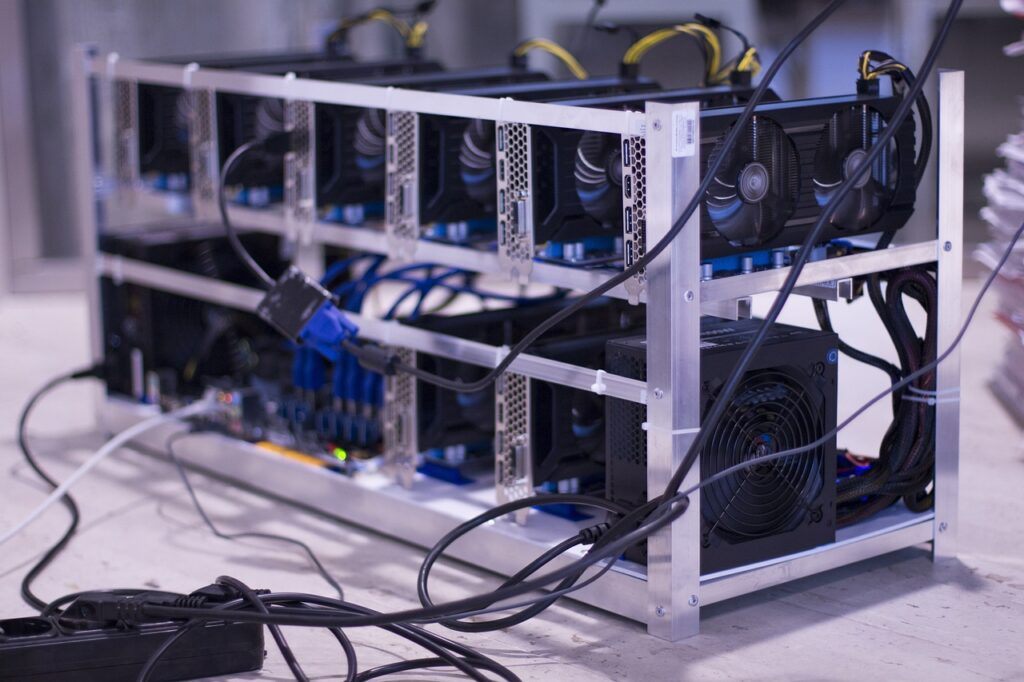Cryptocurrency mining is the process by which new cryptocurrency coins are generated, and transactions are verified on a decentralized blockchain network. This process requires significant computational power, which is why mining is often carried out using specialized hardware, such as ASIC (Application-Specific Integrated Circuit) miners, and requires specific supplies to keep the equipment running efficiently.
In this article, we will discuss the essential supplies needed for crypto mining, including hardware, software, and other necessary equipment.
Mining Hardware:
The primary mining hardware is an ASIC miner, which is designed specifically for mining cryptocurrencies like Bitcoin and Ethereum. ASIC miners are much more efficient than general-purpose CPUs and GPUs, allowing for faster and more efficient mining.
The hardware requirements for mining will vary depending on the specific cryptocurrency being mined. For example, Bitcoin mining requires specialized ASIC miners, while Ethereum mining can be done using GPUs. The hardware specifications needed for mining will vary depending on the cryptocurrency being mined, as well as the specific mining pool and software being used.
Mining Software:
In addition to hardware, mining also requires specific software to manage the mining process. The software is used to connect the mining hardware to the blockchain network and to manage the mining process. The software also allows for the management of the mining pool, the configuration of the mining equipment, and the monitoring of mining performance.
Some popular mining software includes CGminer, BFGminer, EasyMiner, and Bitminter. Each software has its own features, such as compatibility with different operating systems, support for multiple mining pools, and other unique features.
Cooling Equipment:
Mining hardware generates a significant amount of heat, which can cause damage to the equipment and reduce its lifespan. As such, cooling equipment is essential for crypto mining operations. Cooling systems like fans, heatsinks, and liquid cooling systems are commonly used to dissipate the heat generated by the mining hardware.
The type of cooling system required will depend on the specific mining hardware being used and the size of the mining operation. Large-scale mining operations may require more advanced cooling solutions, such as air conditioning or specialized cooling units.
Power Supply:
Mining hardware requires a significant amount of power to operate, and as such, a reliable power supply is essential for any mining operation. The power supply must be able to provide a stable and consistent amount of power to the mining equipment, regardless of the load.
The power supply required will depend on the specific mining hardware being used, as well as the size of the mining operation. Larger mining operations may require multiple power supplies, or even a dedicated power infrastructure to ensure reliable and consistent power.
Internet Connection:
Mining operations require a stable and reliable internet connection to communicate with the blockchain network and mining pools. The internet connection must be fast and reliable to ensure that mining hardware is able to keep up with the demands of the mining process.
In addition to a stable internet connection, mining operations also require a network switch to connect all of the mining equipment to the internet. The switch must be capable of handling the high bandwidth requirements of the mining operation and must be able to handle the number of mining devices connected to it.
Backup and Security Equipment:
Mining operations generate a significant amount of valuable data, such as wallet keys and other important information. As such, it is essential to have backup and security equipment in place to protect this data.
This may include backup power supplies, such as a generator or backup batteries, to ensure that mining operations can continue in the event of a power outage. It may also include physical security equipment, such as cameras and alarms, to protect the mining equipment from theft or vandalism.
Maintenance and Repair Supplies:
Finally, mining operations require regular maintenance and repair to ensure that the mining equipment is operating efficiently. This includes replacement parts, such as fans, heatsinks, and other components that may wear out over time. It is important to have a stock of replacement parts on hand to avoid any downtime in the mining operation.
Additionally, tools such as screwdrivers, pliers, and other basic hand tools are needed to perform repairs and maintenance on the mining equipment. It is also recommended to have a multimeter to test the voltage and current of the equipment and diagnose any issues that may arise.
Regular cleaning of the mining equipment is also important to ensure that it is running efficiently. Cleaning supplies such as compressed air cans, brushes, and alcohol wipes are commonly used to remove dust and debris from the equipment.
In conclusion, cryptocurrency mining requires specialized hardware and software, as well as other essential supplies such as cooling equipment, power supply, internet connection, backup and security equipment, and maintenance and repair supplies. It is important to carefully consider these requirements when setting up a mining operation to ensure that the equipment is operating efficiently and that the operation is profitable.







